From player to key Charlotte FC executive: Darrius Barnes knows MLS like few do
The tidy story of how Darrius Barnes got into soccer begins when he was 5 years old, when his best friend in kindergarten played the game one day at recess, and then Barnes joined in and “never looked back.”
It’s probably a bit oversimplified, in retrospect.
But the “never look back” part is resoundingly true.
Today, after growing up on the soccer fields of Raleigh and attending Duke and making it as a pro in Major League Soccer, Barnes is an executive in the Charlotte FC front office, still living his soccer dream. He serves as President of Crown Legacy FC, the MLS NEXT Pro affiliate of Charlotte FC, and was named MLS NEXT Pro Executive of the Year after Crown Legacy’s first season in 2023.
The Charlotte Observer’s Alex Zietlow spoke to Barnes, 37, about his path to Charlotte FC — which hosts its 2024 season opener Feb. 24 against NYCFC — and a bunch of other topics. Among them: coming through the North Carolina youth soccer ecosystem, what it’s like being considered an MLS historian, how he is a role model for Black professionals in sports business and more.
The interview has been edited for clarity and brevity.
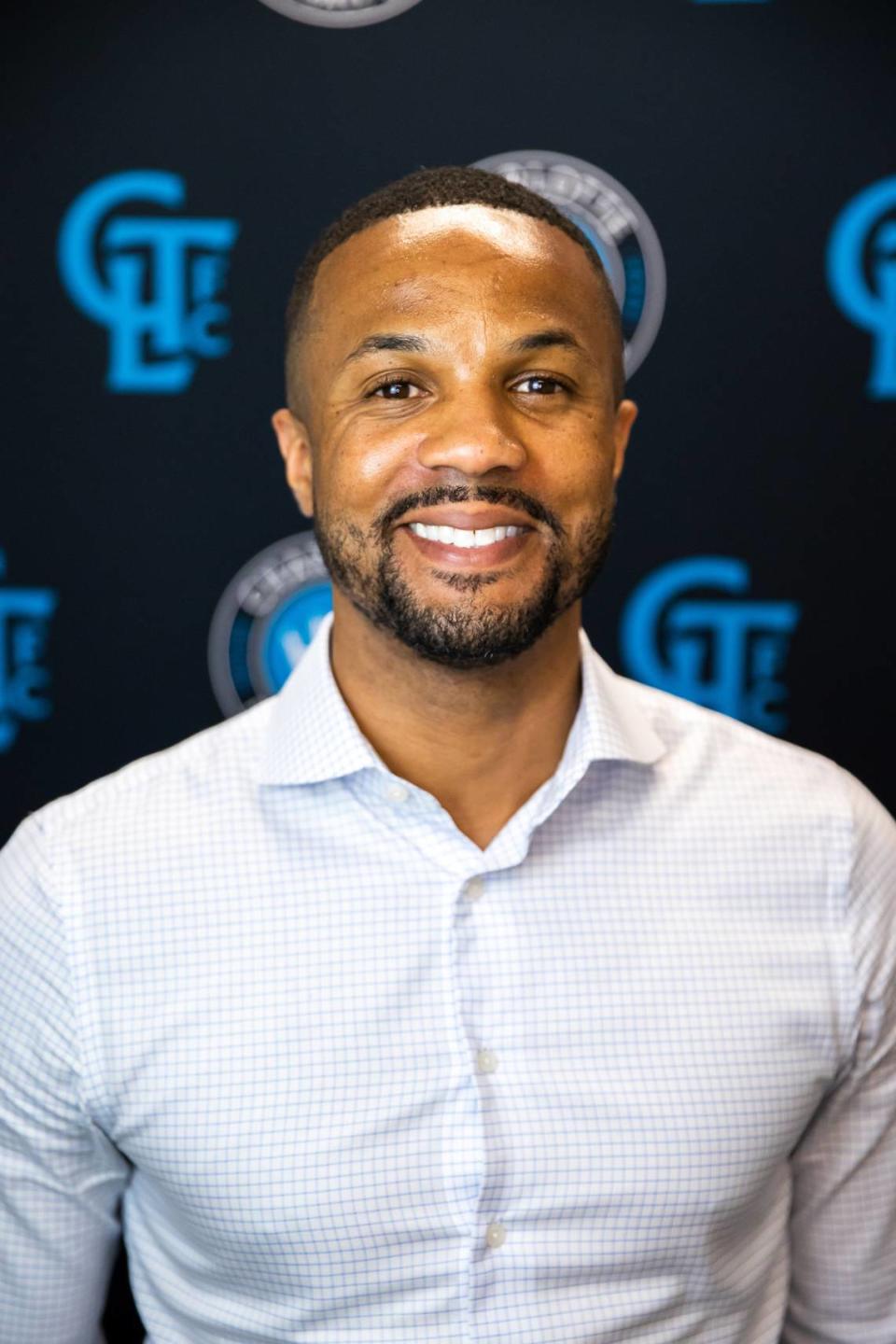
Darrius Barnes, the soccer player from North Carolina
Q: I’m curious to learn more about your early days playing soccer. What was the soccer scene like in the Triangle when you were growing up?
A: It was very different from today’s landscape. Back then it was very much traditional youth soccer, NCYSA, elite soccer. I played for a club, back then it was Knightdale Soccer Club and it turned into — you’ll laugh at this — the name of my club team was called The Knightdale Bad Boys. We were a force to be reckoned with. ... Eventually that club merged with a number of other clubs to form Triangle Football Club, TFC, which was pretty much a rival to what used to be CASL in the Raleigh area. So that was really kind of my club soccer growing up in my youth playing days.
Triangle Football Club ended up merging with CASL and a number of other clubs to form what’s now NCFC’s Academy. So now the whole landscape has completely changed.
Q: So you rise up through these various youth leagues and organizations. And like you say, the pathway to becoming a pro is not as streamlined as it is today. You had to make a decision of, ‘As a teenager, do I go and chase this professional dream? Or do I go the college route with soccer?’ And you ultimately decided to go to Duke. Could you explain why you went to Duke and what the two options presented?
A: Honestly, the pathway when I was coming through, from youth soccer to high school, it wasn’t necessarily that clear or that great of a path. Essentially, you had to be on one of the youth national teams — U17 national team or residency — to really go that route, which was less than 1% of players to do that. So college was the primary route to get to the pros when I was coming through.
For me, I was trying to make the best decision both from an athletic and academic standpoint. Academics were extremely important for me and my family. We wanted to make sure I had a good education, for me to have the best of both worlds.
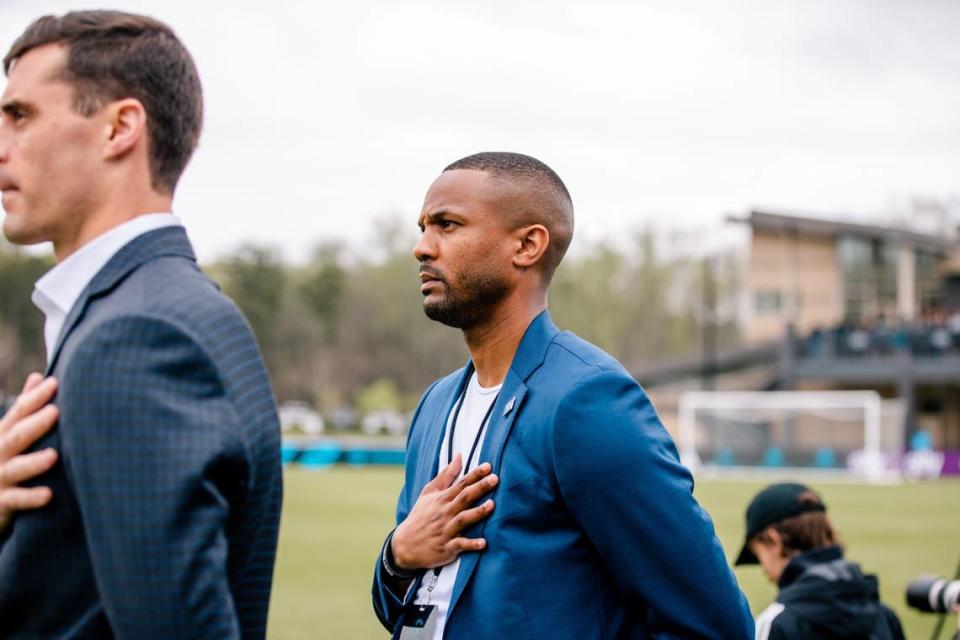
Q: The path you took, I’d imagine, is what the lay person thinks is the traditional route, even now. But in some ways it feels like you’re among the last generation to do it this way.
A: Yeah, and it all evolves with the sport as well. I mean, it’s spread globally. This model, this academy model and a pathway to pro at a younger age has existed for a longer period of time. Being a professional is about repetition. It’s about practice. It’s about being able to get players more repetition; better and more coaching at an earlier age is only going to help breed that success.
You know, I wish the current landscape was around when I was coming through. But I also see value — at that time, I think that was the best route for me. But current day, I think the opportunity that these players have to get proper coaching and training four days a week and then play on the weekend. Yeah, it’s intensive from a scheduling and demand standpoint, but this is what it takes nowadays to get it to the professional level. And I think you’re seeing that when you look at players who have come through our Academy who are really pushing and knocking on the door with Crown Legacy FC and the first team. That’s what will happen when you look at players like Nimfasha Berchimas, Brian Romero and Jack Neeley, and I’m sure there will be more players who will continue to come through our pathway.
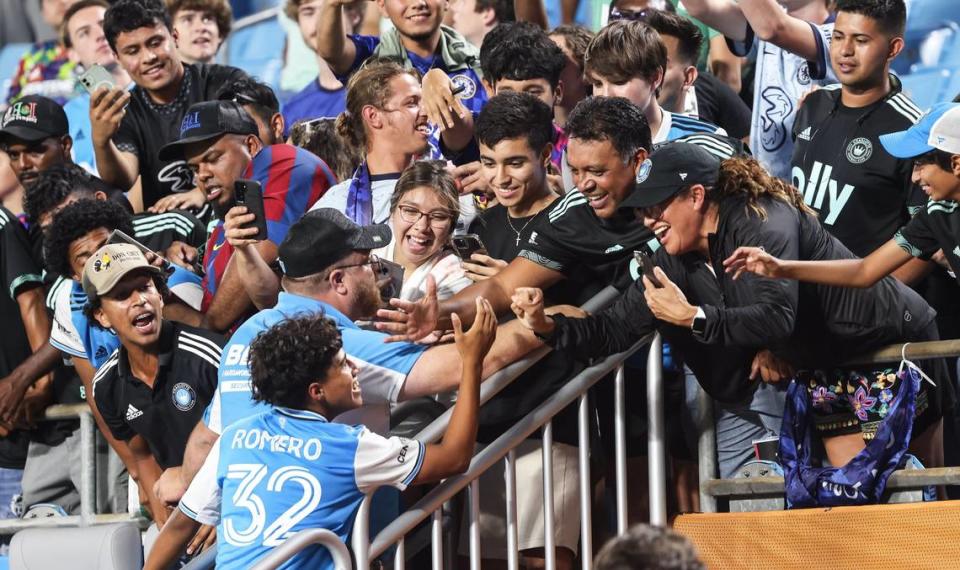
A life in Major League Soccer
Q: After your nine-year playing career — which includes playing alongside then-fourth string goalkeeper and now USMNT star Matt Turner, an interesting story on its own — you ventured into the business side of MLS. You then later joined Charlotte FC, then later was promoted to president of Crown Legacy FC once Crown Legacy launched.
What drew you to the business side of the league, and what do you think is the secret behind your success in it to date?
A: That’s one I get asked a lot. We talked earlier about soccer being a passion of mine. It was a passion of mine as soon as I stepped foot on the field and living out a childhood dream and play professionally. That was everything I could’ve asked and dreamed for. And so, I wanted to continue to give back to the game and help this game grow in this country, help it grow in this region, and that’s something I wanted to do. But I wanted to try my hand in a different capacity, from a business standpoint, from a commercial standpoint. ...
So while I experienced the competition and sporting side as a player, it was important to me to well-round myself from the business operation side. That’s what I tried my hand in. But I would be lying if I said I wasn’t still utilizing the sporting side. I still work with our general manager Zoran Krneta and assistant general manager Bobby Belair and our scouting director Thomas Schaling and Ben Green and the whole staff on the sporting side. So for me, going the business route kind of gave me an accelerated education on that side of the business. And being able to pair that with my sporting background gave me the tools to progress.
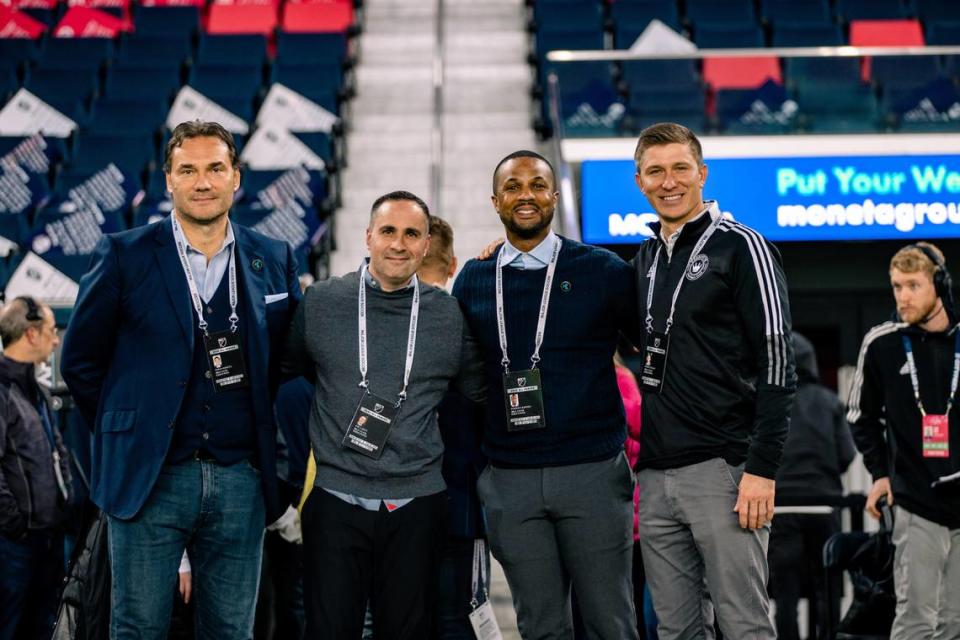
Q: Considering you’ve been at all levels of MLS, pretty much, and are now on the cutting edge of this new venture in MLS NEXT Pro, do you feel like an MLS historian of sorts?
A: Yeah, I mean in an official capacity —
Q: I don’t mean to call you old, by the way.
A: Nah, it’s not calling me old if I am old (laughs). But no, I think it’s just having an understanding of in order to know where you’re going, you have to know where you’ve come from. I think understanding kind of the league’s history, and having that baseline knowledge, it kind of leads back to best practices. ... There’s huge opportunity for where this league is headed, and more specifically for Charlotte FC and Crown Legacy FC. As we move closer and closer to 2026, with the World Cup coming here, even next year 2025 with the Club World Cup. This year, with Copa America coming here. So there’s tons of opportunity. Tons of soccer appetite. It’s up to us to capitalize on that.
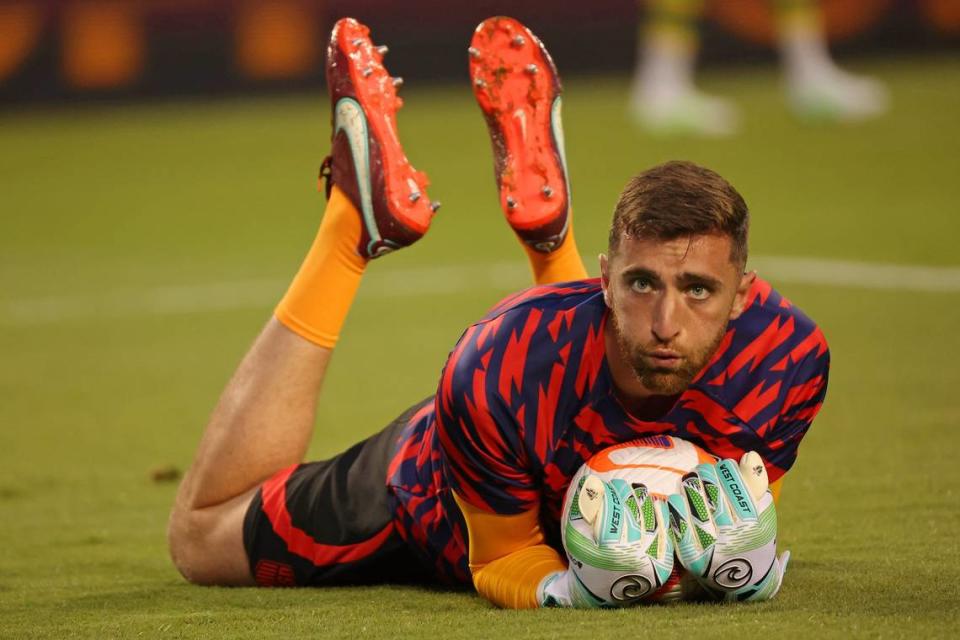
On building Crown Legacy FC and MLS NEXT Pro
Q: Crown Legacy, which begins a new season when it hosts Carolina Core on March 17 at Sportsplex in Matthews, had a pretty remarkable first year in terms of wins and losses. How would you describe Year 1?
A: Year 1 was chaos in the most amazing way. I don’t think we could’ve predicted the success we had on the pitch. But I’m extremely proud of all the work that went into getting the club off the ground, getting the brand off the ground, the roster development — it really was a collaboration across the board. ... Year 1, fantastic. And we’re trying to repeat that in Year 2. And it’s going to be tough. That’s the task that we have on our hands right now, trying to replicate that success and extend it even further, and try to bring an MLS NEXT Pro Cup to Charlotte. But even outside of that, as a business operations standpoint, we’re trying to continue to amplify that Charlotte FC brand.
Q: MLS NEXT Pro, in a few instances, has subtly different rules than MLS. Among them: Every game ends in a shootout. There is an off-field treatment rule, which basically means that if you need medical attention for more than 15 minutes, you will be treated to on the sideline and will have to miss at least three minutes.
I’m curious your opinion about these rules and if you think MLS will adopt them at some point?
A: First of all, I will say, part of what this league is for is to really be innovative, and to look at adopting new ideas that can enhance the level of play, to look at opportunities where play can be optimized. So the off-field treatment rule: that rule is actually being implemented in MLS this year. (It’s now 15 seconds; two minutes.) We’ll see how that plays out. But it did well in MLS NEXT Pro. Like I said, this is what this league’s for — to try things to potentially be implemented. Some will work, some will be off the wall, and some of them won’t work.
Q: And the shootouts?
A: For MLS NEXT Pro, I really enjoy it because it puts these young players in pressure moments without being on the first-team stage. And so there’s something at stake, an extra point at stake, you all know there’s pressure when you take a penalty in general. But to be able to have that extra point on the line I think is part of player development.
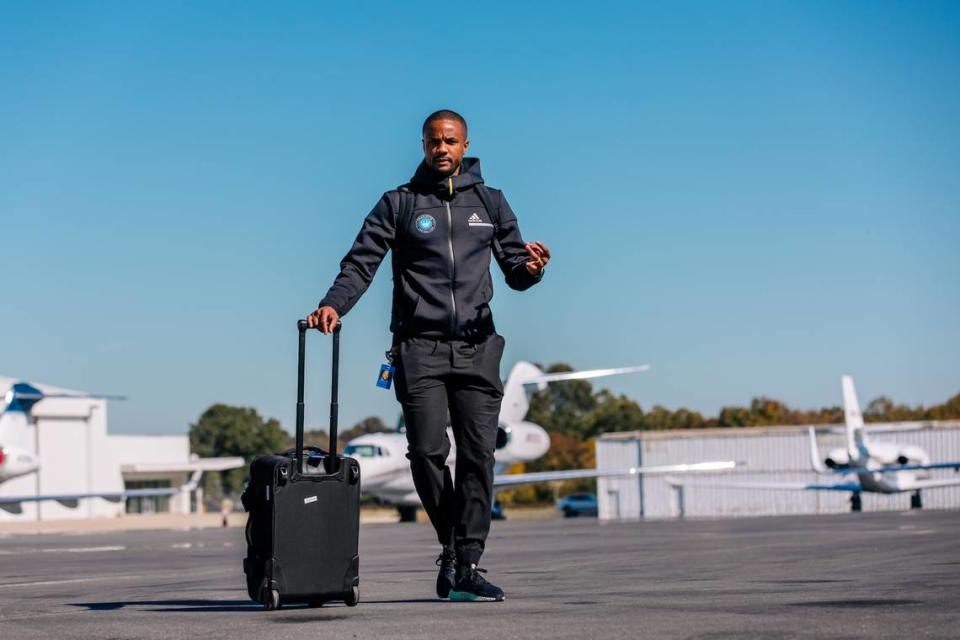
Darrius Barnes: ‘Representation with action’ is most important
Q: Across all American sports and leagues, there is still work to be done when it comes to Black representation in team front offices. Do you take pride in being in this role and potentially helping the next generation?
A: I think representation is extremely important. But also I don’t think it stops there. Being represented in the right way is important. For me, trying to be a trailblazer or trying to be a role model isn’t anything that I set out to be. If I end up being that, that’s fantastic, and if I inspire a next generation of Black leaders, or Black executives, that’s fantastic — for me it’s about helping provide opportunities.
Performance, to me, is your resume. Your output is your resume. And so me being in this role and not maximizing it would do a disservice to those coming after me. So I do think representation is extremely important, but I think representation with action is even more important. So for me, I try to do everything I can. If someone wants information, or needs advice to how I got to where I got, or with things that I’m doing and things that I’m working on, or how to break into the space, my door is always open, my phone is always available, my inbox is always available. Young Black professionals need these opportunities. I think young people in general need these opportunities. So whatever I can do to help, support and aid in that, I’m open to doing it.


